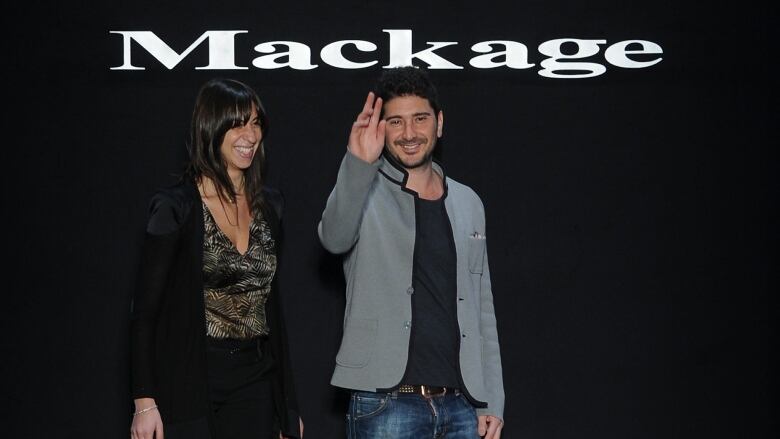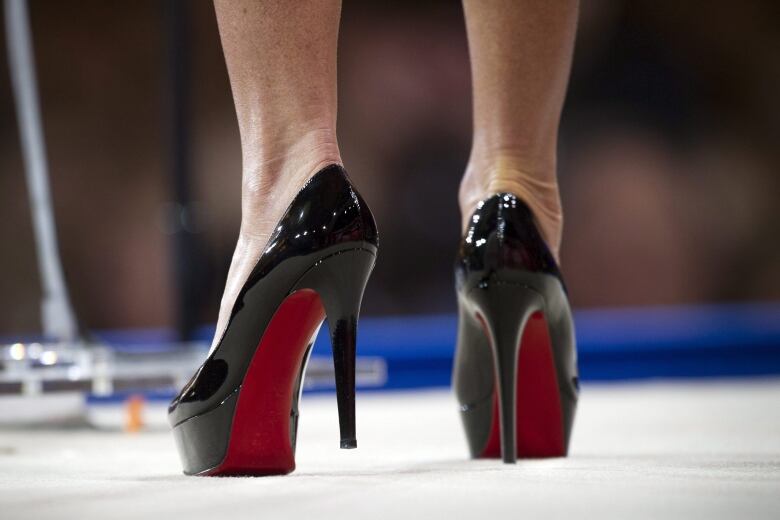Catwalk copycats an increasing concern for Canadian fashion designers
As Toronto Fashion Week struts on, some designers are fighting 'fast fashion' ripping off their work

The classic quote states that "Imitation is the sincerest form of flattery," but in the world of fashionwhere creativity is a designer's greatest commoditythis kind offlattery can hurt the bottom line.
With the rise of so called "fast fashion," smartphones thatcan instantly captureand sharerunway looksas wellas consumers who demandwhat they've just seen translatedas cheaply manufactured knock-offs, the prevalence of catwalk copycats seem to be on the rise.

That's a concern for fashion lawyer Ashlee Froese, a partner at Fogler Rubinoff.
"There are some designers resigned to the fact that imitation is the sincerest form of flattery.As an intellectual property lawyer that makes me not so happy," she told CBC News on Wednesday.
"The more impact that digital media has in Fashion Week and the displaying of their designs immediatelythe cheaper it is to manufacture in other jurisdictions. The more globalized that our economy becomes, the easier it is to rip off other designs."

There are some well known international cases involving high-end designers.
For instance,Christian Louboutinhassued a host of brands (includingYves Saint Laurent, Charles Jourdan, Alba Footwear, Zara andVan Haren)over what they saw as a copy of their distinctive red-soled shoes.
Call for stronger copyright laws
The Montreal-based design duobehind Mackage, who show their Fall/Winter 2016 collection Wednesday night as part of Toronto Fashion Week, say they've also fallen victim to the trend.
They feel weaker laws in Canada, compared to legislation incountries such as France, make it difficult for them to do anything about it.
"We would like the Canada copyright to adapt itself to fashionbecause there's loopholes in it.There are many loopholes," said Eran Elfassy, co-creative director of Mackage.
"The laws, they're not good for us.They don't protect us in any way."
There are many loopholes [in Canadian copyright law]...The laws, they're not good for us.They don't protect us in any way.- Eran Elfassy, Mackage
Froese also believesthatCanada's intellectual property protection is not as strong as countries with bigger fashion industries such as Italy, France and India. However, shesays there are methods for Canadian designers to protect their work, although the costs may not always make it worthwhile.
"If you know about what types of intellectual property protection are available, you can start to incorporate that into the design process, so you are creating products that are more suitable and more protectable," she said.
That added pressure might betoo much for many designers to take on,Elfassy noted.
"If you want to spend all your money protecting your style, you're not going to be innovative anymore.You'renot going to spend your time creating," he said.
In France,when one Mackage designwas copied by an internationally distributed brand, Elfassy said the matter wasdealt with quickly and the items removed from sale in less than two weeks.
"At the end of the day, we're designers, we want to create. Wedon't want to spend our time fighting in court or finding ways to protect what we do," added his co-creative director,Elisa Dahan.
"We've created things and they're ours."














_(720p).jpg)


 OFFICIAL HD MUSIC VIDEO.jpg)
.jpg)



























































































